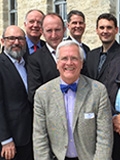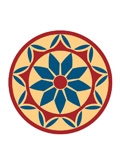Global consortium forms to standardize and improve sharing and displaying of image-based scholarly resources on the web
Leaders from eleven research libraries, national libraries, and nonprofit image repositories met at Oxford University to form the International Image Interoperability Framework Consortium.
Access to image-based resources is fundamental to research, scholarship and the transmission of cultural knowledge. Until now, much of the Internet’s image-based resources have been locked up in silos, with access restricted to custom-built applications. The International Image Interoperability Framework (IIIF) supports uniform display of images of books, maps, scrolls, manuscripts, musical scores and archival material from participating institutions for display, manipulation, measurement and annotation by scholars and students working individually or in groups around the world.





 Stanford University Home
Stanford University Home